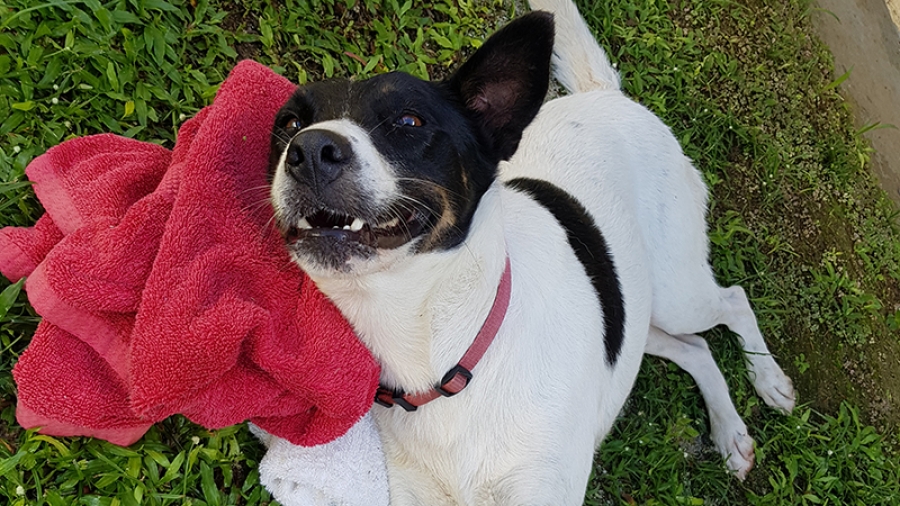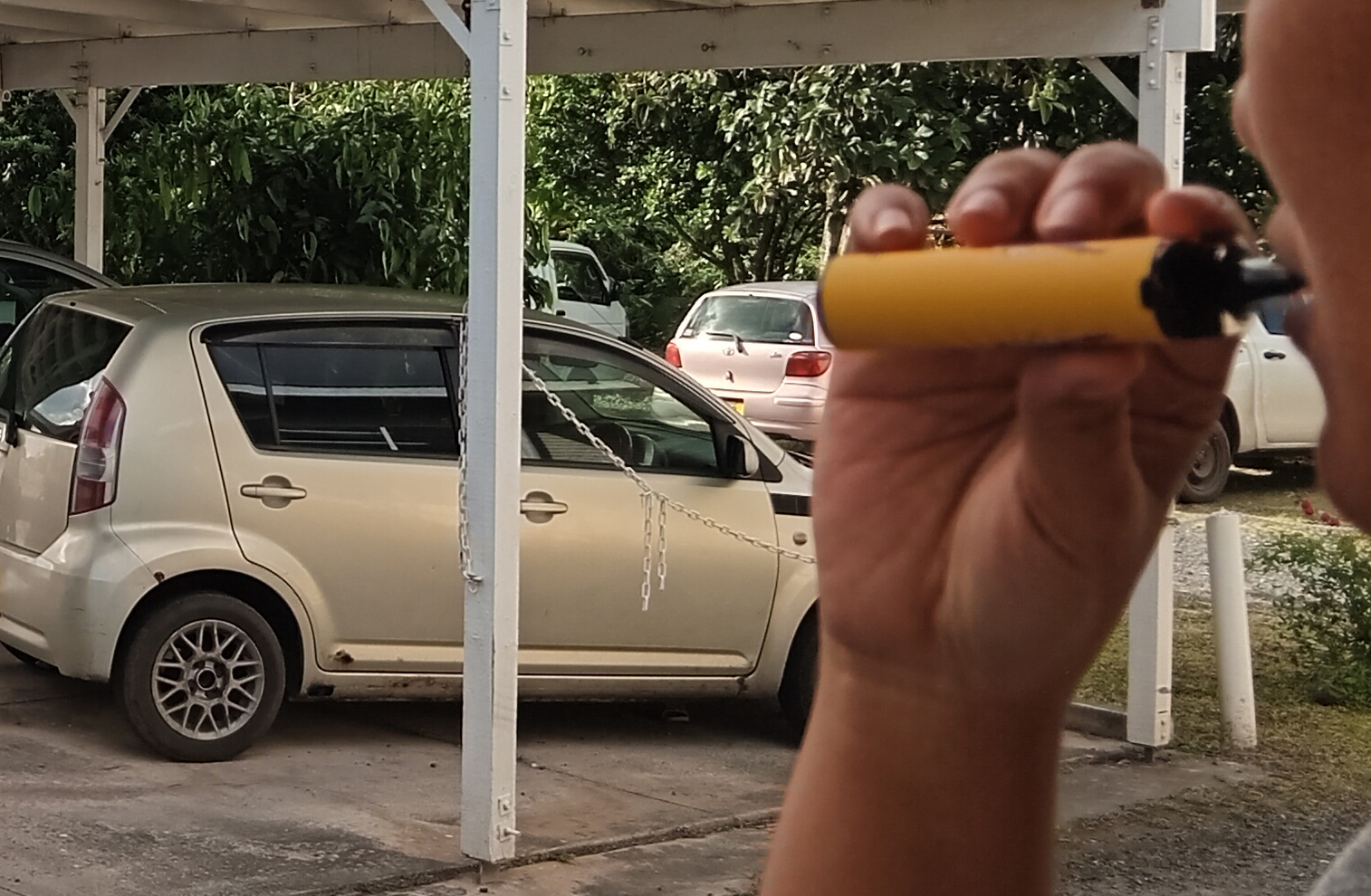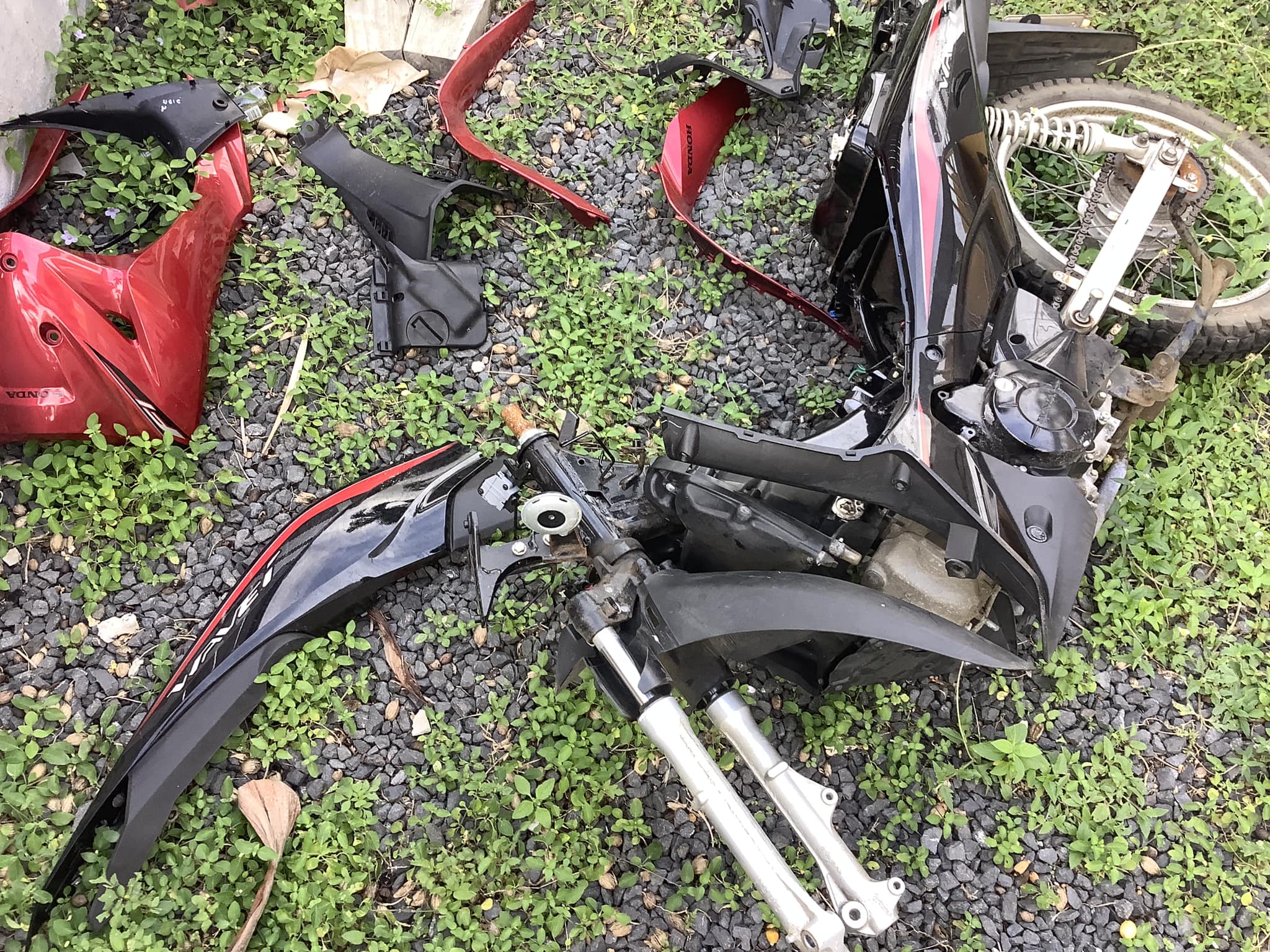Pet Talk: ‘Don’t eat reef fish, or feed it to your pets’
Wednesday 4 October 2023 | Written by Supplied | Published in Opinion, Pet Talk

In 2020 a dog named Kusu from Vaimaanga was admitted to Te Are Manu vet clinic this week with fish poisoning. 20042309
Ciguatera poisoning, or as we know it, fish poisoning, occurs all over the world in animals and people. We can’t cure it in animals, all we can do is make them comfortable, writes Dr Michael Baer, Te Are Manu Vet Clinic medical director.
The dog had wobbly legs making lots of noise. He was excited but aware of what was happening and trying to respond. But his head and limbs had more in common with one of those inflatable advertising things that they put in front of car yards; you know the ones, they flap everywhere. He was making little yip type noises constantly. And his tongue was flapping around like a flag in a gale. We heard him coming in the drive, even over the noise of the diesel motor. And we were pretty sure we knew what was wrong with him.
Ciguatera poisoning, or as we know it, fish poisoning, occurs all over the world. In animals and people. In people the story goes back at least to European explorers in the Caribbean, Indian and Pacific in the 1500s who provided the earliest written records. It is fair to suspect there were cases before this which were not written down. It is a bit later before reports in dogs and cats appear on the scene. Aste cells, and muscle cells.
Fish poisoning is a bit of a misnomer, the fish don’t make the poison. Rather it is made by single celled alga, which in turn lives on dead and damaged coral. Herbivorous fish (like parrot) eat the algae, then are eaten by carnivorous fish (like moray eels or trevally). The more algae the fish eat, the more toxic they become. Because the toxic fish do not taste any different, we eat them and feed them to our animals. And we and our animals get poisoned.
Outbreaks happen often, limited to certain areas or more widespread, where coral damage is significant. Crown-of-thorns starfish, coral damage from waves and storms and coral bleaching increase the food available to the algae, and so the amount of toxin around. So we see more cases.
Why the wobbly legs and all the noise? Why the floppy tongue? The poison affects nerves, muscles and taste buds. People suffer diarrhoea and vomiting, followed by tingling hands and feet, and numbness around their mouths. Some have hallucinations or heart problems.
Dogs and cats have a range of similar problems, but thing we see most are dogs that are very wobbly or can’t move. With floppy tongues that won’t stay in their mouths. And that make a lot of noise, yipping and groaning. Sometimes they have really stiff front legs and really floppy back legs. They often crawl about, paddling with funny movements of their legs, never quite managing to get their bodies off the ground. Whether they hallucinate we don’t know.
We can’t cure it; all we can do is make them comfortable. So, we stop the vomiting, the diarrhoea. We treat them with painkillers if they are stiff and sore. We give them sedatives if they are anxious or noisy. We explain to owners how to care for them, how to provide food and water at room temperature and make sure they are on soft bedding.
And they get better. Usually after about 10 days, but sometimes longer. People sometimes have long lasting problems, similar to chronic fatigue syndrome. We don’t know about dogs and cats.
So, please don’t eat reef fish. Or feed it to your dogs and cats. And don’t let them eat anything they find on the beach.










































